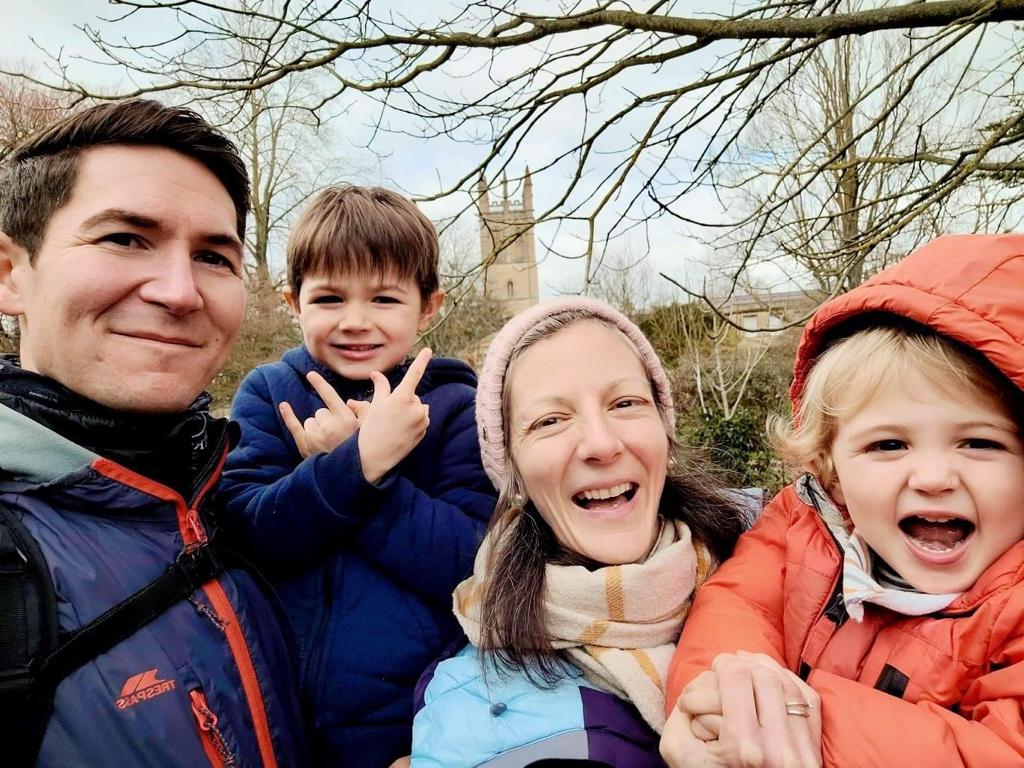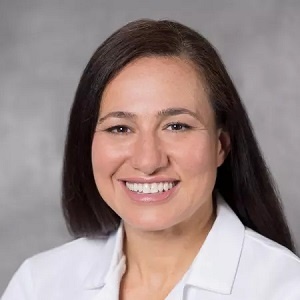
My 2.5-year journey with translocation renal cell carcinoma
April 30, 2024
This is a guest post by Dawn Dyson, 37, who was diagnosed with translocation renal cell carcinoma in 2022. Dawn…
Read More
Dr. Rana McKay received a 2023 KCA Trailblazer Award for research on “Dissecting predictors of response to immunotherapy in patients with renal cell carcinoma.” Dr. McKay is a medical oncologist at UC San Diego Health and Associate Professor of Medicine at the UC San Diego School of Medicine. We spoke with Dr. McKay about her research and the impact it can have on people with kidney cancer.
Can you briefly summarize your research project?
Immunotherapy has become standard of care for patients with advanced renal cell carcinoma (RCC). Additionally, the practice of cytoreductive nephrectomy, which is surgery to remove a primary kidney tumor in the setting of disease that has already spread or metastasized, has evolved for this disease. In clinical practice, we were seeing a group of individuals being treated with immunotherapy and then subsequently undergoing cytoreductive nephrectomy. We conducted a clinical analysis to analyze the outcomes of these individuals and identified that a subset of patients had minimal or no tumor at the time of surgical resection. Given this clinical observation, we embarked on this project to better define predictors of response to immunotherapy by investigation of baseline biopsy and nephrectomy tumor specimens.
You mention in your project proposal that tumors can evolve with immune checkpoint blockade treatment. Does that mean that type of immunotherapy changes the tumor in some way?
That is correct. Immune checkpoint blockade can cause changes in the tumor and the tumor microenvironment. We will investigate changes that are associated with favorable pathologic responses to treatment and those associated with treatment resistance.
What about this research do you think could be most exciting for patients and families?
What is most exciting about this work is the opportunity to identify exceptional responders to immunotherapy so we can better select patients for treatment. The goal is to define how we can more precisely use immunotherapy in the clinic to maximize efficacy in those patients most likely to respond and limit use in patients destined to progress on treatment.
What are the chances of approaching highly standardized treatment guidelines for advanced RCC – in the way that breast cancer, for example, has strong treatment guidelines – and how long until we might see those?
As a field we have been working to better define biomarkers which can be utilized in clinical practice. We are not there yet though multiple biomarkers have been under investigation. Additionally, as a field, we need to design studies that better inform the optimized sequencing strategies for patients.
What motivates you?
What motivates me is the opportunity to truly make a positive impact in the lives of my patients and their families. Given that our treatment options are suboptimal, as a field we must drive research forward that aims to identify improved therapies and biomarkers to better optimize treatment.
What else do you want people to know about your work?
I believe that each patient is unique and deserves a personalized approach to their treatment plan. This approach is important for treatment selection, toxicity management, and ensuring well rounded holistic approach to patient care. As a researcher, my research questions stem from the unmet needs in the clinic. We have much to learn from our patients and their experiences.